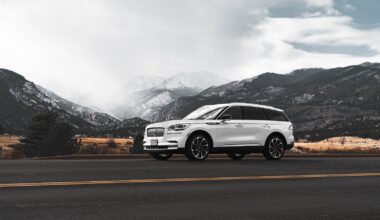Table of Contents Show
Introduction
Car insurance is a crucial part of owning a car responsibly, offering financial security in the event of an accident, theft, or damage. Among the various types of auto insurance, liability car insurance is fundamental. In the event that you cause an accident, this coverage will protect you, covering the costs of injuries and property damage others suffer. In this article, we will delve into the intricacies of liability car insurance, exploring its key aspects and addressing frequently asked questions to help you make informed decisions about your coverage.
Understanding Liability Car Insurance
What is Liability Car Insurance?
When you drive, you risk injuring other people or causing property damage to their property. Liability car insurance covers these risks. Its primary purpose is to shield you from financial liability if you are found to be at fault in an accident; it does not protect your injuries or damage to your car.
Coverage Components
- Bodily Injury Liability (BIL):
This portion of liability insurance pays for the lost wages, medical bills, and rehabilitation costs of anyone injured in an accident you caused.
- Property Damage Liability (PDL):
If you are responsible for the damage, PDL covers repairing or replacing someone else’s property, such as their vehicle or other structures.
State Requirements
Liability insurance is mandatory in almost every state in the U.S., with each state setting its minimum coverage requirements. You must know your state’s specific mandates to ensure compliance with the law and adequate protection.
Limits and Deductibles
Insurance policies often have coverage limits, signifying the highest sum the insurance will pay for a covered claim. These limits are typically expressed as numbers, such as 25/50/25, which denotes $25,000 per person for bodily injury, $50,000 for each bodily accident, and $25,000 for property damage.
Policyholders can also select a deductible, which is the total money the policyholder has to pay before receiving insurance coverage. Lower premiums are associated with higher deductibles, but finding a balance is essential, depending on your financial circumstances.
Frequently Asked Questions
1. Is Liability Insurance Enough?
Liability insurance is the legal minimum coverage, but more is required to safeguard all assets. Consider the value of your savings, properties, and other assets. If these exceed your liability coverage’s limitations, consider getting more coverage, such as collision and comprehensive.
2. Does Liability Insurance Cover My Injuries or Vehicle Damage?
No, liability insurance does not cover your injuries or the damage to your vehicle. It only pays for other people’s medical expenses and property losses if you are at fault for the accident. You must purchase additional coverage like personal injury protection (PIP) and collision insurance to protect your medical expenses and vehicle damage.
3. What Happens if My Liability Limits Are Exceeded?
If the cost of a covered claim exceeds your liability coverage limits, you may be personally responsible for the remaining expenses. To avoid this situation, you should consider higher liability limits or additional umbrella insurance.
4. Are Rental Cars Covered Under Liability Insurance?
Generally, liability insurance extends to rental cars, but it’s essential to check your policy and discuss it with your insurer. Remember that liability coverage might not cover damage to the rental vehicle itself; It could be necessary for you to get extra insurance from the rental company.
5. Liability Insurance Cover Accidents in Which I’m Not at Fault?
Liability insurance covers losses for which you are responsible. If the other driver is at fault and has insurance, their liability insurance will cover your injuries and property damage. You may need uninsured/underinsured motorist coverage to protect yourself if the at-fault driver does not have insurance or has insufficient coverage.
6. Can I Change My Liability Coverage Limits?
You can adjust your liability coverage limits when renewing your policy or at other specified times. However, before making changes, evaluating your financial situation and the potential risks involved is crucial. Higher coverage limits may increase premiums, but they offer more excellent protection.
7. How Does Liability Insurance Affect My Premiums?
Generally speaking, liability insurance is less expensive than collision or comprehensive coverage. Your premiums are influenced by various factors, including your driving history, age, location, and the coverage limits you choose. Lowering your premiums can be achieved by choosing greater deductibles and keeping a spotless driving record.
People also read:
Strategies to Boost Your Total Loan Balance Responsibly
Conclusion
Liability car insurance is a foundational component of responsible driving, ensuring you can financially handle the consequences if you’re at fault in an accident. Making the best choices for your auto insurance requires knowledge of the nuances of liability coverage and answering frequently asked questions.






